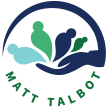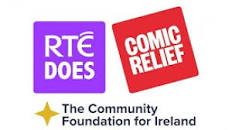
Education Programme
"We are living in a new economy - powered by technology, fuelled by information, and driven by knowledge."
The education model that had been traditionally rolled out in Matt Talbot incorporated modular learning reinforced by one to one mentoring support, focus on study skills and assignment completion. We felt that critical thinking, problem solving and communication were constant themes that shone through in other aspects of programme content and our revised educational approach should emanate from this concept.
With this in mind,we are in the process of migrating all programme activity to a Project Based Learning approach with a focus on Value Creation Pedagogy.
Through this change, we aim to create an environment within which all participants who come to our programme will exit independent of services; become more engaged with key systems to support the individual as a responsible citizen; engaged in lifelong learning building social capital at community level increasing self-esteem, confidence and personal satisfaction through the development of social and life skills; increased agency and autonomy, the development of new friendships, improved and sustained relationships, and enhancing contact with people and the community.
Read MoreWhat is Project Based Learning and How Will This Approach Be Applied to Our Work in Matt Talbot?
Much of life requires solving problems or overcoming challenges via the input of two or more individuals. From learning to walk, write or speak, to conducting research. When we change our thinking to recognising that these problems or challenges to overcome can be viewed as projects, our capacity to effect change becomes much more solution focussed. This forms the basis of the PBL approach and imbedded into this is the development of the core skills of
-
Critical Thinking
An ability to transcend simple recollection of information and upgrade to logical reasoning via analysing information and applying correlating knowledge-based principals.
-
Communication
The ability to share information, ideas, arguments and narrative clearly and correctly according the situation.
-
Cooperation
The ability to pool resources for the success of the group or project, whether the resources are information or ideas
Next Steps to Achieve our Ambition
The move to PBL requires a shift in thinking and approach to all programme content and activity to support the proposed model. Over the last two years MTCT has begun to lay the foundations to build towards this highly impactful approach
1. Ownership of Programme
Each participant works with core staff to populate their timetable on a weekly basis with activities, courses, appointments etc. that support their identified career plan and build in skills that will support them to the follow through on agreed tasks. The participant is required to email their timetable to the programme manager. It is the participant who decides how can I best make use of my time and work on my identified goals; manage and schedule appointments and decide on goals and tasks
2. Future Options programme
Future Options is a bespoke system through which participants develop a range of skills. The programme also provides access to a range of suitably supported work placements, along with complementary industry related training and educational opportunities. Recently our participants have enjoyed work placements with Sherry Fitzgerald and Citius Ltd.
It gives each participant the capacity to develop the tools to explore realistic and achievable career opportunities through a clear and specific learning plan. Our programme allows us the flexibility in approach which centres on individual interest and incorporation of a wide variety of learning media and digital learning technologies.
This programme explores the 21st century skills that have been identified by employers as key ahead of relevant experience and training to achieve success in the work-place, including resilience, emotional intelligence, problem solving, creative thinking, critical thinking, teamwork and digital literacy.
Programme activity is designed to encompass the broadest possible learning experiences through a range of educational and career-focused activities.
Our digital lending library and our work to increase digital equity had been supported by grants received from RTÉ Does Comic Relief, The National Lottery and the Mitigating against Educational Disadvantage Fund.
3. Project Based Learning
Project Based Learning is a method of learning where students gain knowledge and skills by working for an extended period of time investigating and responding to an authentic, engaging, and complex question, problem, or challenge. Last summer our group facilitated a post pandemic Reconnect Programme where they planned and hosted a series of Wellness Days for a variety of community organisations at our centre in Ballinascorney. The Reconnect Days aimed to reconnect community organisations who had lost touch as a result of the restrictions experienced during the pandemic. The days included guided trail walks, yoga, holistic therapies, meditation and forest bathing followed by a barbecue lunch prepared by the group.
The Reconnect Project allowed us to apply a Project Based learning approach to hosting and organising all hospitality and activities and provided opportunities for our participants to develop key skills including planning, budgeting, risk management, event management, project management, digital literacy, problem solving and teamwork. In the spirit of Value Creation Pedagogy the project gave us an opportunity to build a wider community response to wellness and potential development of social and support networks across programmes in the Ballyfermot area.
Our project for Summer 2023 going into 2024 will be the re-imagining of the grounds in our Ballyfermot site into a beautiful, nourishing, sensory green space which will include an Edible Community Programme.
4. PBL 2023/24 - The Edible Community Programme
We have now taken it for granted that we live in a disposable society – children relate the origin of food to a trip to their local supermarket. Vegetables, fruit and meat are produce that come from shelves in our local shops and not from the ground or from fields. We need to learn to love food again and use this as the basis of good mental and physical health.
Inspired by the values and success of the Incredible Edible Movement and other urban edible projects taking off globally, we successfully applied to Dublin City Council and secured a small plot of land based on the Cor na Mona site on Kylemore Road in Ballyfermot.
Edible Communities are not just about growing food – they are based on the idea of sustainability and recognising that a community is the responsibility of all its residents.
Coming together makes a community stronger. Our community is stronger when we create growing spaces in a central gathering place for its members to plant vegetables, herbs, and edible flowers and enjoy the fruits of our labour.
Our ambition is to offer an opportunity for members to adopt families and those in-need, food banks, etc., to share their homegrown food; let’s get bartering again and create a sharing community to provide our community with sustainable produce in times of natural or manufactured disasters as well as challenging economic times to foster green programmes, environmental awareness, and healthy organic living.
We welcome your support in bringing the community together to set up the first edible community in Ireland.
To date this project has been supported by Dublin City Council LCDC Fund, Mitigating Against Educational Disadvantage Fund, The National Lottery, Mental Health Ireland Community Grant , ESB’s Energy for Generations fund , The Reach Fund , The Dominicans Ministries Fund and Mitchell + Associates who have helped us in designing the proposed garden.
5. Wellness - Resilience, Recovery and Rehabilitation
At Matt Talbot Community Trust we have an all-encompassing approach to wellness, which incorporates the physical, emotional and mental wellbeing of each individual. We recognise resilience building and accountability as crucial elements in the development of positive outcomes for all community members.
We currently run a Smart Recovery weekly programme. This is a peer-led scientific recovery model based on the principles of CBT, REBT and Motivational Interviewing. The programme places emphasis on self- responsibility, social interest, tolerance and commitment. As the group develops it will become self-perpetuating in that group members will train in Smart techniques to be able to establish community-based Smart Recovery meetings. This year we piloted a Women’s Only Smart Recovery programme as part of the SWAAT (explain) initiative which we hope to roll out as a core part of our programme in the future.
Our wellness programme also consists of a weekly one to one session with the Project Worker where outcomes are measured in collaboration with each participant using Outcomes Star. Outcomes Star is a family of evidence-based tools for measuring and supporting change when working with people. Ita self directed tool charting the journey of change for each participant (link)
Our wellness programme includes a range of health and fitness activities to promote physical and mental health and meaningful use of time. Activities include weekly yoga, hiking and hill walking, gym activities, cycling and sea swimming.
All participants access our wellbeing programme. This programme is key to creating the emotional, psychological and social foundations necessary to progress in education and/or employment.
6. Peer to Peer Life Coaching
Life Coaching is a well-established approach and powerful intervention which is recognised within the education, healthcare, and private sectors for its positive outcomes. Using the “Grow Model” as a learning framework, life coaching is grounded in the principle that people must be empowered to help themselves.Life coaching is based on transformative tools and methods that enable individuals to change harmful behaviours and negative beliefs. This approach aims to lessen a culture of dependency on others while nurturing a confident and more secure connection within ourselves. This enables individuals to become more confident and assertive in decision-making and problem-solving, ultimately leading to a more fulfilled and independent identity.
We are creating a ‘collaborative enterprise’ with several local community organisations to establish an experiential learning network and create a ‘Peer to Peer’ life coaching culture. This project aims to build leadership at all levels and with everyone involved within the services and in the wider community.
The Peer to Peer Life Coaching initiative aims to train Community project staff and some of their service users in the principles and practice of delivering Life Coaching, using a Peer Education approach to prepare participants to support their organisation’s integration of this working methodology into their existing support systems.
7. Impact Days with Companies
The days are planned and run out using the PBL principles to include allocation of roles, completion of tasks, communication at team level, budgeting and use of digital technology where applicable
We believe that this approach is an effective working methodology in proactively addressing the holistic needs of our participant group in that it promotes challenging ways of thinking, encouraging ownership of the outcome of interventions, promotion of peer to peer learning and support, becoming independent of services and promoting volunteerism and a giving back to community.
8. Bi Ullamh
The Bí Ullamh programme aims to develop essential 21stcentury skills including soft skills and digital literacy. It is designed to challenge some of the fundamental issues that create barriers to our participants in terms of the workplace and in becoming a responsible and active member of the community. The programme aims to effect change in a supportive but challenging manner, transforming mindsets and current cultural norms. In developing this programme we have created a creative, innovative and engaging programme to encourage creative and critical thinking and to encourage creative problem solving and self efficacy through the application of design thinking. It is a blended programme which includes a combination of digital learning technologies, workshops, self directed activities and project-based learning activities. It can be delivered online or face to face and on a one to one basis or within a group environment. This programme UCD IA.












